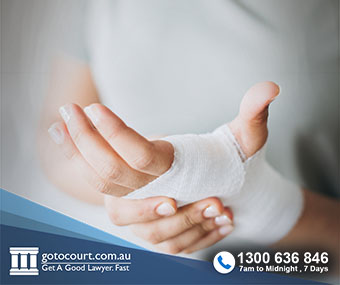In Tasmania, a person who has been the victim of a crime may be eligible to claim financial assistance under the Victims of Crime Assistance Act 1976. This scheme exists to help those who have sustained injuries from a crime, or been affected by the death of a family member resulting from a crime, to claim monetary assistance to assist them to recover. This article deals with victims of crime assistance in Tasmania.
What cannot be claimed?
A person cannot claim victims of crime assistance in relation to:
- damage, loss of or theft of property;
- offences that occurred in other states or territories;
- injuries resulting from the use of a motor vehicle;
- offences that occurred prior to 4 August 1976.
Who can claim victims of crime assistance?
Victims of crime assistance can be claimed by a primary victim, a secondary victim or a related victim.
A primary victim is the person who the offence was committed against. A secondary victim is a person who suffers an injury (such as PTSD) as a result of witnessing the offence, or the parent or guardian of a primary victim who is a child.
A related victim is a spouse, child or sibling of a primary victim, a parent of a primary victim who is an adult, or a person who is in a personal relationship with a primary victim.
When can victims of crime assistance be awarded?
Compensation may be awarded where a person has been killed or suffered injury as a result of a crime in Tasmania or while assisting police to carry out an arrest or prevent the commission of an offence.
Primary victims
A primary victim may be awarded up to $30,918 in compensation for a single offence or up to $51,531 for more than one offence.
This may be awarded for:
- Expenses related to their injury;
- Medical, dental, psychological or counselling services they will need in the future;
- Loss of income because of the injury;
- Pain and suffering arising from the injury;
- The expenses associated with claiming compensation.
Secondary victims
A secondary victim may be awarded up to $ 20,612 compensation in relation to the death or injury of another person.
This may be awarded for:
- Expenses incurred in relation to their injury;
- Expenses incurred as a result of the primary victim’s death or injury (where the secondary victim is their parent or guardian);
- Medical, dental, psychological or counselling services they will need in the future;
- Loss of income resulting from their permanent incapacity to work arising from their injury or from their temporary inability to work due to caring for the primary victim;
- Pain and suffering arising from the injury;
- The expenses associated with claiming compensation.
Related victims
A related victim may be awarded up to $10,306 compensation.
This may be awarded for:
- Expenses related to their injury;
- Expenses related to the death or injury of the primary victim;
- Medical, dental, psychological or counselling services they will need in the future;
- Loss of income resulting from their permanent incapacity to work arising from their injury or from their temporary inability to work due to caring for the primary victim;
- Pain and suffering arising from the injury;
- If the primary victim dies, financial loss if the related victim was dependent on them;
- The expenses associated with claiming compensation.
Applying for victims of crime assistance
An application for victims of crime assistance can be made by completing a form and submitting it to Victims Support Services together with supporting documentation such as police reports and medical reports.
It will generally take at least 12 months for an application to be processed.
Hearings
When the application is completed, a hearing will be scheduled. The claimant will be required to attend the hearing and tell their story. They can be accompanied by a support person. If they are not comfortable attending a face-to-face hearing, it may be possible to arrange to attend by phone.
Time limits
An application for victims of crime assistance must be made within three years of the date of the offence, or if the victim was under 18, within three years of the date they turned 18.
Recovery from the offender
If the offender is found guilty of the offence, they will be ordered to repay the compensation that has been awarded to the victim, to the Tasmanian government. An offender may object to an order in writing, setting out their grounds for objecting. The order may be confirmed, varied, or revoked after the offender’s objections have been heard.
If you require legal advice or representation in any legal matter, please contact Go To Court Lawyers.







